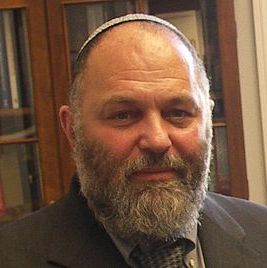Eitam Visits Venezuelan Jews
"We must bring the Jews of Venezuela to Israel as soon as possible," says religious Zionist Member of Knesset Effie Eitam, who returned at the end of last week from a secret visit to Venezuela, worried about the Jewish community's situation there. Eitam plans to meet Prime Minister Olmert soon and report to him regarding the community's difficult situation. "They are requesting help," says Eitam of Venezuela's 12,000 Jews. "They know that they are living on borrowed time, but they are afraid to send the panic signal."
Eitam was invited to Venezuela by the Jewish community there and by the Keren Hayesod. His visit was kept secret, and the community leaders begged him to keep a low profile and not speak publicly as long as he was there.
Venezuela's dictator, President Hugo Chavez, is considered one of the most prominent enemies of the United States, is known for his frequent strong statements against the Zionist state, and is Iran's major ally in its struggle against America. Chavez has recently hosted Iran's president, Mahmoud Ahmadinejad, twice in Venezuela, and even sent his private airplane to pick him up in New York.
Venezuela holds enormous reserves of oil as well as uranium ore; experts estimate that it is the main supplier of uranium for the Iranian nuclear program. With Chavez's ideology becoming increasingly extreme over the years, the Jews of Venezuela are afraid. The Jewish community in the country is considered wealthy.
"They live in fortified buildings and travel in armored cars," said Eitam. "They live in high-security neighborhoods and closed-off locations, and they tremble with fear. They know it is a question of time. They fear that should a confrontation break out between Israel and Iran, or between Iran and the West, Chavez may take advantage of the circumstances and freeze all Jewish assets in his country, or take other steps."
Eitam also said that the rate of crime against wealthy Jews was increasing. Many of them have been kidnapped and ransomed for large sums of money. "Anti-Israel and anti-Jewish sentiments are present in Venezuela. The Jews there are uncertain and afraid, and very much want Israeli assistance. Some of them have already moved their families to other locations, such as Miami and Panama. Every family has an emergency plan."
Eitam discussed the possibility of immigration to the Zionist state with the Jews of Venezuela. "They expressed interest and hope that the state would help them to immigrate as a group," he said. "We are talking about an unusually unified and cohesive community. They would very much like the opportunity to build their own community in the Zionist state. They would like to get around the bureaucracy, possibly even buying land and establishing new settlements or neighborhoods, as did the immigrants in Raanana, Beit Shemesh, Netanya and other places."
Publicly, the Venezuelan Jews continue to state that they have no security problems and no fear. But in private, their fears are mounting, and the threat becomes more real from day to day. The Israeli ambassador to Venezuela, Shlomo Cohen, feels isolated, and the government maintains almost no contact with him.
The Zionist foreign ministry stated that the Jewish situation in Venezuela was "not good" and that there was a danger that after the end of the current ambassador's term, President Chavez would refuse to accept another Israeli ambassador.
Eitam, in his conversations with the community leaders, pushed them to reach a decision. "The Venezuelan administration is indeed elected democratically, but it acts and sounds like a dictatorship," he said.

This is the classic Zionist strategy: to provoke danger to Jews in other countries, and then appear as their saviors, ready to bring them all to the Zionist state. If the Jews of Venezuela are smart, they will publicly renounce all sympathy with the Zionists, as the Iranian Jews already do. Anti-Zionism does not have to lead to anti-Semitism, unless the Jews bring it upon themselves by identifying with Zionism.
The following parable depicts the role of the Zionists in the safety of the Jewish people.
Once there was a wicked man who wanted to take revenge on his enemy by burning down his house and property, and he hired a clever criminal to carry out the plan. The criminal came to the man's house one night, pretending to be a wayfarer seeking a place to stay. The kind-hearted man gave him a room to sleep in. In the middle of the night, when he was sure that the family was asleep, he set the house on fire and then went back to his bed. When the flames began to consume the house, the host and his family woke up and tried to save whatever they could. But they were in such a panic that they didn't know what to do first. The criminal pretended to wake up, and rushed to help the family save their property. Since he was not in a panic everything was going according to plans he was able to do a better job saving property than the host himself. The next morning the host told his friends about his great loss, and added, "But thanks to my good deed of taking in a guest, some things were saved." They asked him who the guest was, and when he described him, the friends said, "That man is a criminal! If not for him, you would not have had any fire at all! Beware of him, don't let him near you again, or it may cost you your life next time!" (Vayoel Moshe, siman 111)